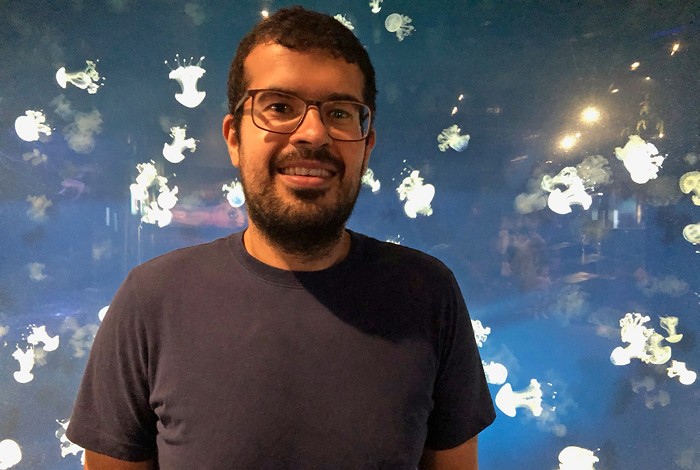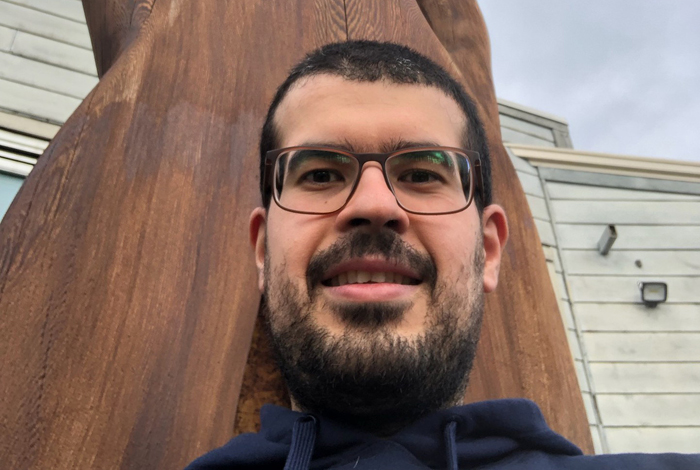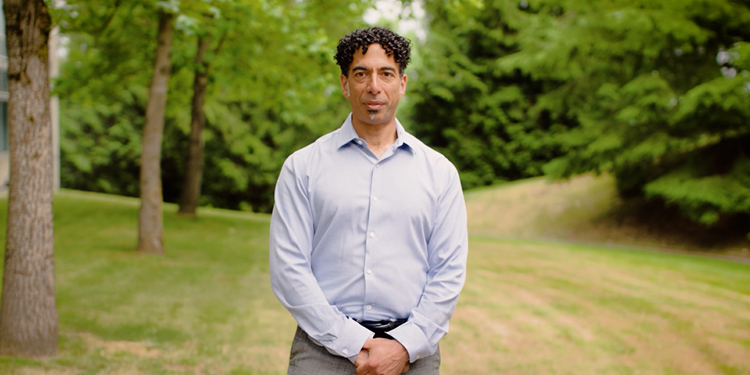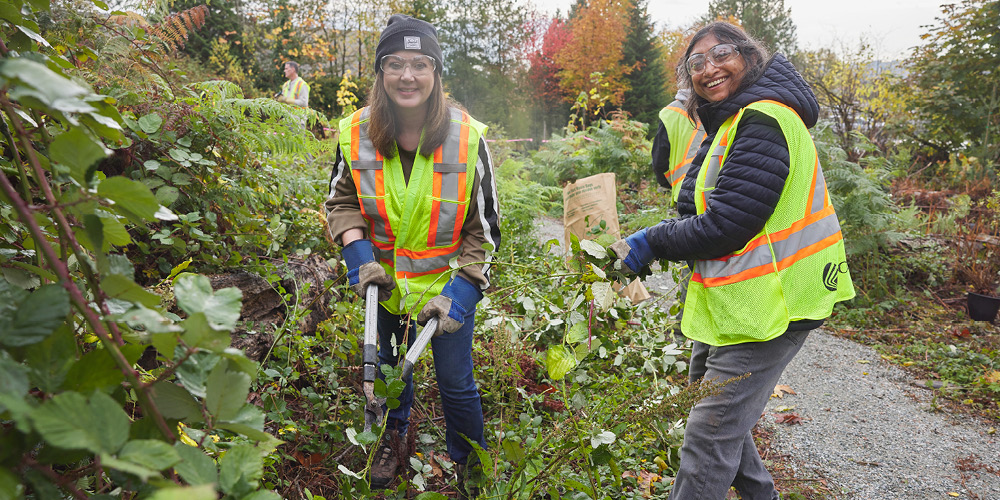FortisBC’s climate action partners: meet Ehsan Haghi
January 31, 2022
Our Climate Action Partners Program works with local governments and organizations throughout B.C. to help achieve our shared climate action goals.
We collaborate with our partners to hire a specialist who will work to lower emissions, improve energy efficiency and/or foster more affordable energy solutions in their community. We support their climate action goals with our renewable and lower carbon energy1 solutions.
Here's how Ehsan Haghi, community energy specialist with xʷməθkʷəy̓əm (Musqueam Indian Band), is taking climate action for his community.
Why did you get involved with the Climate Action Partners Program at FortisBC?
I’m originally from Iran. I came to Canada when I was 25, which is when I got my PhD from the University of Waterloo.
Energy was always a hot topic throughout my education. I care about this planet as much as anyone, and we all need to do our part to preserve it for future generations. It’s actually one of the big reasons I became an engineer – I wanted to learn some practical concepts and skills that I could use to make the environment, and people’s lives, better.
Coming from Iran, I feel I had a unique perspective. Every developed country has grand thoughts on how to overcome climate change, but what about developing countries who may not be able to afford some of these more ambitious ideas? Or even in those developed countries, what about lower income families and communities who are grappling with financial constraints, and trying to balance living standards with lowering emissions? They need a voice at the table, and I want to make sure everyone is listening to them.
I’ve always been passionate about affordable climate action that’s sustainable long term. It’s amazing to think that my hobby is now my work. I joined the Climate Action Partners Program in December 2020 as a community energy specialist with xʷməθkʷəy̓əm (Musqueam Indian Band), and it’s been absolutely incredible.
Can you share more about your work as a community energy specialist?
I’d love to. I work with two departments – housing and public works.
With the housing department, I’m working to improve energy efficiency for xʷməθkʷəy̓əm (Musqueam) homes. We use FortisBC’s Energy Conservation Assistance Program and the Indigenous Communities Conservation Program for assessing energy use in homes. We also host community events to raise awareness on energy efficiency.
For public works, I do similar work but for on-reserve buildings owned by xʷməθkʷəy̓əm (Musqueam). This includes replacing old and inefficient equipment with higher-efficiency equipment, retrofitting appliances and lighting, you name it. We’re assessing all public buildings and we even had a cool pilot project with FortisBC to install a gas absorption heat pump.

What are the benefits of this work to xʷməθkʷəy̓əm (Musqueam Indian Band)?
There is so much potential within this community to save energy and reduce utility bills. Many residents are elderly and don’t have the financial resources to continuously buy new appliances or equipment.
But it’s not just about energy efficiency, it’s about health and safety. Many of these homes are old and aren’t built to today’s standards. Over time, they show their issues. By improving energy components such as adequate insulation, we are making these homes more energy efficient and safer to live in.
With the Climate Action Partners Program and funding, we’re improving the health and safety of the residents of the community while reducing costs and emissions, all at the same time.
Anything else you’d like to share?
We know we need to fight climate change, but there’s also a financial price to pay. Low-income people and vulnerable communities can’t afford to pay a high financial price for climate action. Sometimes it’s easy to forget others don’t have as much money, but financial policies can hit lower income households the hardest.
Communities such as xʷməθkʷəy̓əm (Musqueam Indian Band) have very different needs than large municipalities. The impacts of wildfires, floods and other extreme weather events can impact these communities differently. We have to remember that every community has different needs and our climate change policies need to reflect that.
We absolutely need to beat climate change, but it needs to be affordable for everyone, and sustainable long term.

Connect with us to learn more about being a climate action partner
Our climate action partners are part of a large community of like-minded organizations that are working to support a lower carbon future. We encourage any local governments and organizations that share these values to connect with our climate action partners team to discuss how we can tackle climate action together.
1FortisBC uses the term renewable and lower carbon energy to refer collectively to electricity and the lower carbon gases or fuels that the utility can acquire under the Greenhouse Gas Reduction (Clean Energy) Regulation, which are: Renewable Natural Gas (also called RNG or biomethane), hydrogen, synthesis gas (from wood waste) and lignin. FortisBC’s renewable and lower carbon gas portfolio currently includes only Renewable Natural Gas. Other gases and fuels may be added to the program over time. Depending on their source, all of these gases have differing levels of lifecycle carbon intensity. However, all of these gases are lower carbon when compared to the lifecycle carbon intensity of conventional natural gas. The current burner tip emission factor of RNG is 0.27 grams of carbon dioxide equivalent per megajoule of energy (gCO2e/MJ) and the current renewable and lower carbon gas portfolio lifecycle emissions for stationary combustion are -22 gCO2e/MJ. This is below B.C.’s lifecycle carbon intensity threshold of 30.8 gCO2e/MJ as set out in the 2024 Greenhouse Gas Reduction Regulation amendments.



